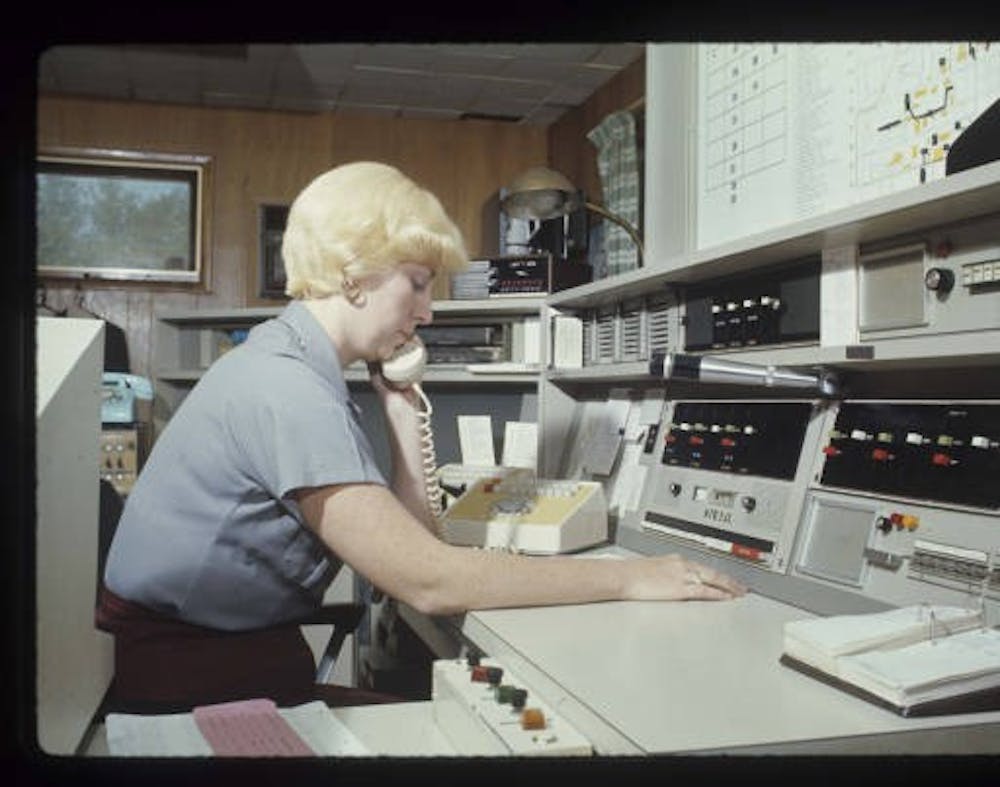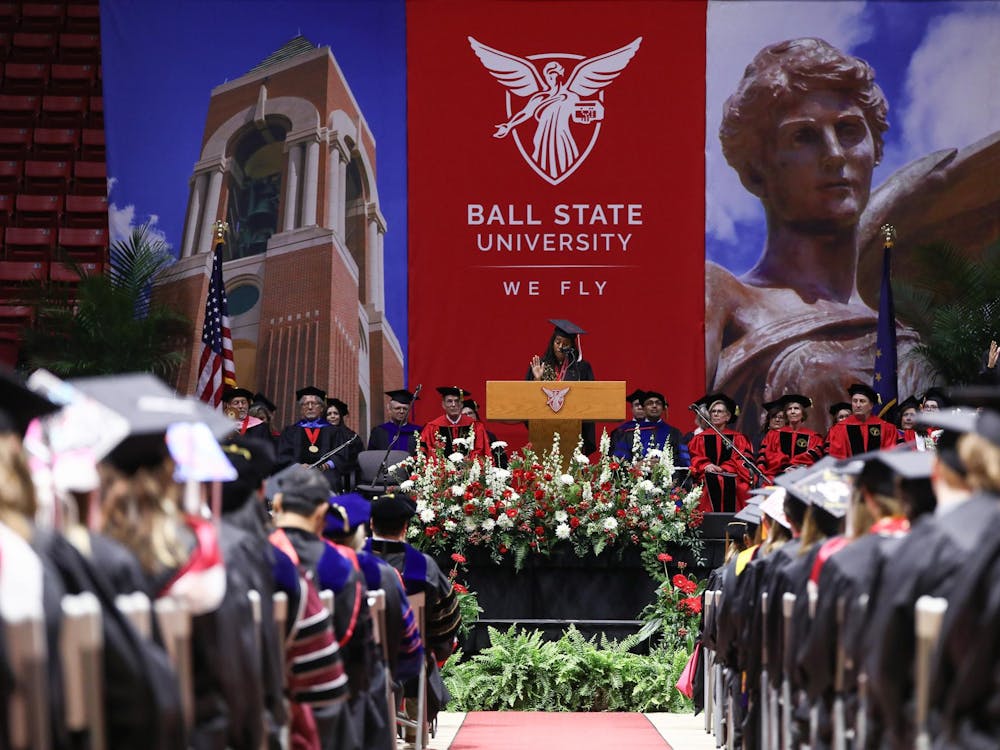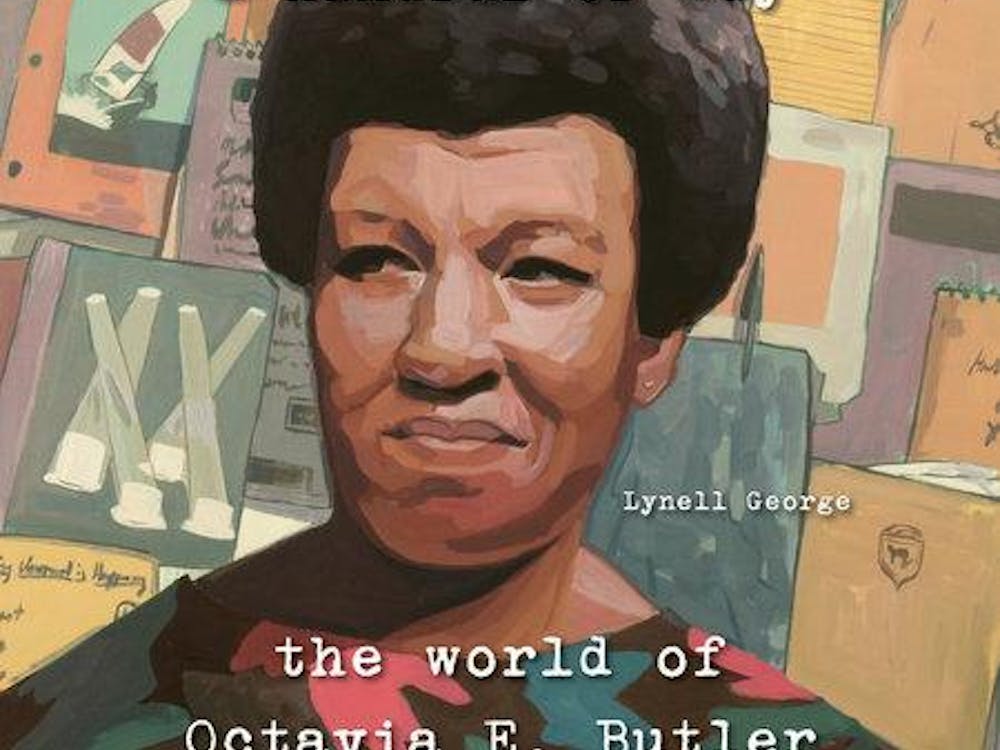If you’ve called University Police recently, there is a good chance you talked to one of the five telecommunications officers.
They are the connection between callers and the resources they need, like police officers or paramedics.
Public Safety Telecommunications Week, which is from April 8 to April 14, celebrates dispatchers including those who work for UPD.
The week, which started in California in 1981, was recognized by the United States Congress in 1991 as a week to thank the emergency telecommunications technicians, or more commonly, dispatchers.
The Daily News sat down with two of the department’s telecommunications officers, Melody Davis and Jeremy Waymire, to ask them a few questions about their job.
Melody Davis
Q: How long have you been working here?
A: Here, I have been here six years as a communication officer. I have been working for 29.
Q: Where did you work previously?
A: Indiana State Police
Q: What made you want to be a dispatcher?
A: To be honest, I wanted to be an officer and my parents forbid me to at the age of 18. So then I went another route and I stumbled into dispatching and realized I could do a lot for the public by being a dispatcher. You’re the first line of communication when someone is having an emergency.
Q: What is a fun part of the job, if there is any fun part of the job?
A: Oh, there is always a fun part of the job. It’s just rewarding to know that you helped somebody throughout your shift. You’ll get the bad calls, but then you’ll also get the great calls.
Q: What are some of those bad and great calls?
A: Someone in emotional distress and they don’t know where else to turn to. It just heightens your sense of awareness. You treat those a little bit more delicately than you would another call. And then the simple calls, occasionally you’ll get that phone call from elderly person thinking they’ve got AT&T and need help with their phone. So if you’re not busy, you help them with their phone and make their day.
Q: How do you stay calm while the callers are freaking out?
A: Throughout your training process from day one they tell you that your voice inflections and your behavior can create the other person to either be relaxed or to go into a complete meltdown. So, you want to keep that person as relaxed as you can. You just talk to them calmly, softly and keep asking repetitive questions, and at one point you might have to say, ‘I need you to calm down so you can help your mom better or your dad better.’ Or here, we get a lot of the emergency phone calls coming in through the campus elevators. You might get stuck in the elevator and if you’ve got claustrophobia, that really escalates your situation. And just to have someone on that phone talking to you and talking you through it until the officers arrive and the firemen, it makes a huge deal.
Q: If a call comes in, what do you do?
A: We have a lot of students call because we also take phone calls for Charlie Charter for parking services, so they’ll call us and need assistance with their vehicles, either a jump start or an unlock if they’ve locked their keys in the car. They will also call us with parking questions and situations. And then we have parents call to want to check on their children because they haven’t heard or talked to them for a day or two. And then the officers do their traffic stops. So we are there for them too. It’s a lot of multitasking at times. We answer all 911 phones from all campus buildings. If you dial 911, it comes here first and the emergency phones in the elevators are tied to our 911 system, so they come here. And the blue lights around campus are emergency phones. You pick that up or engage it and it immediately comes to us, and then all of the security alarms and fire alarms on campus come here as well.
Jeremy Waymire
Q: What are some of the things you enjoy about your job?
A: The stuff I enjoy — helping the community, helping people in need. You know, making sure the officers working the road fire and EMS guys that are out there assisting with our calls are safe and taken care of and they have everything they need as quick as I can get it to them so they can help the people they’re helping in need. It’s very rewarding.
Q: What inspired you to get into a career where you are helping people to the level you’re helping them at now?
A: Originally, I wanted to get into something with law enforcement. I was kind of looking at maybe being a conservation officer. I spoke with a couple of conservation officers. They said it was kind of difficult at the time to get involved with it just because they didn’t have a high turnover rate and they weren’t doing a lot of hiring at that point and time. So I was 18, I needed a job fresh out of high school, was going to college for architecture and I’d done an internship in high school with the local police department. So I thought, ‘Well, I’m going to get a job part-time as a dispatcher, kind of get my foot in the door, feel it out, see if I like it,’ and it just kind of snowballed from there. I got head over heels in love with it and just ended up sticking with it.
Q: What keeps you calm when someone is panicking to the max?
A: The training and the experience I have had over the years. You just kind of fall back on your training and know that this is the job you signed up for, so we have to keep our composure or it will all go downhill. Even the officers on the radio hear that you’re excited on the radio then they start getting, you know, a little bit of excitement in their voice and, you know, the adrenaline starts going. So as long as we’re calm in here, everyone around us will stay calm. The officers, the other first responders, the callers, things like that. So you just have to fall back on your training, and keep telling yourself, ‘Stay calm stay calm.’
Q: How much training do they put you through?
A: When I started, it was a couple of hours on the counsel with another dispatcher. Now, here at this department, we put you through a 40-hour basic telecommunicator course before you do anything else. After that basic telecommunicator course, then you go through a 40-hour what we call emergency medical dispatch course or EMD course that prepares you to give first responder instructions, CPR, things like that over the phone, some pre-arrival medical instructions. Once you complete that course, then you go sit down here at the counsel depending on your experience. If you’re fresh, never done this before, you could be in here with another dispatcher or trainer for another six to eight weeks before we start kind of looking to get you out on your own. If you have previous experience, it may be a little shorter. You may be here for four weeks, six weeks, somewhere around there. So, you’re looking at minimum, before you even sit down to start answering phones or working on the computer, you’re looking at a minimum, 80 hours of classroom work.
Kwake Dakwa contributed to this story.
Contact Andrew Smith with comments at ajsmith15@bsu.edu or on Twitter at @AndrewSmithNews.





